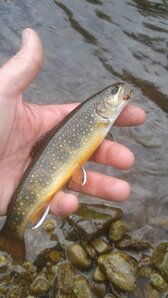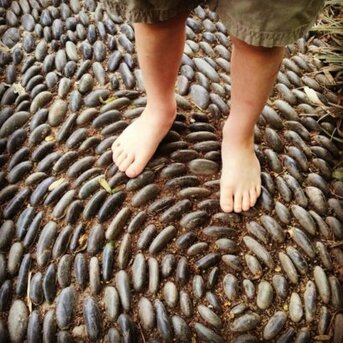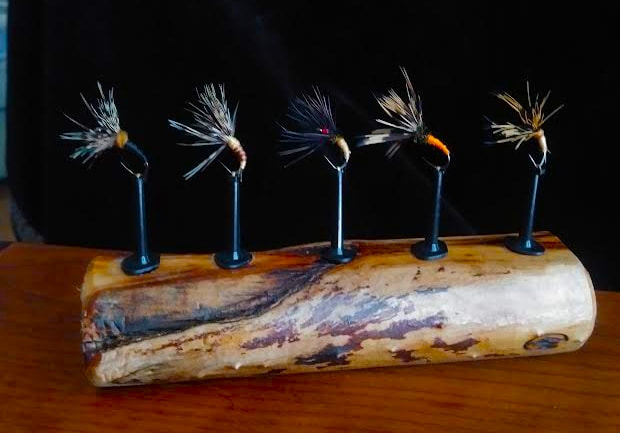|
Last post we talked about "Mushin" or "No Mind". Which is about stillness and seated meditation. But we can't live our lives on a cushion. For this reason I now introduce "Imashin" which roughly translated from Japanese means "Now Mind". I like to refer to this also as "Only this" practice. Imashin allows us to practice meditation in our actions we make in our daily lives. The Meditation of Action
Understanding “Only This”. Here is a simple experiment to help you understand. Stop what you are doing and find something small and easy to toss into the air. It can be a set of car keys, a ball or some other small object that you can easily toss up and catch. Toss the item a good 3 feet or so into the air (higher if you are outdoors or have a high ceiling) and catch it. Repeat this action several times. Don’t think of anything else except the tossing and catching action. Watch the item as it floats in space and then comes back down to your hand. Did you catch it? Did you get distracted between the tosses? Did you miss any of the catches? This simple experiment shows you the experience of being totally in attention to an activity. You have just experienced in it's simplest form, what “only this” practice looks and feels like. Applying "Only This" to Our Lives “Only this” practice can be applied to literally any activity we do and can be done anywhere we are. Over time, with practice and attention, we gradually recognize that we are not merely voyeurs of the activities in our lives, but that we are connected and part of those activities. Our relationship to our lives should be of oneness in each moment. But the more you pay attention to this practice, you will notice that your mind want to be the driver of your experiences. Our thinking mind has a way of distracting us. It seems to be on a mission to hijack each moment from us with thoughts, ideas and attachments that are not needed or even irrelevant. Our minds like to take the wheel of our lives and force us down roads of distraction. Through “Only this” practice of mindfulness we learn to differentiate between what is mind and what is reality in front of us. We become aware of when our mind is trying to drive our lives and when we need to take the wheel back. Ultimately over time and with practice, the most that our thinking part of our mind should be doing is to sit in the backseat quietly, just enjoying the ride. Taking this practice to the stream Coming around now to how this practice is meaningful to tenkara, we can apply this practice to our fishing. Begin the practice as you drive to where you want to fish. Breath, watch the road and watch your mind as you drive. Be aware of your car, the traffic, the road, and the route you are taking. Decide if the radio is helping or hurting your experience of the moment, or just decide to drive in silence. Take in the sights along the way from your starting point all the way to your destination. You can then apply the principle of the practice to getting your waders on, checking your gear, and maybe drinking a little water. Now as you head for the stream, you are walking, listening to the stream or birds, feeling the breeze, or smelling the air. This flows to the moment that you find you are standing by the stream. We can occasionally tell ourselves “Only this”. You are seeing where you want to cast. “…Only this”. You are casting. “Only this”. You watch your line and fly go through the air… It lands and you watch the fly sink and move with the current. “…Only this.” The fly gets gulped by the fish, and you are present for the strike, you set the hook, and work the fish in. “Only this.” Fish to net, you take a moment to enjoy the place you are, the colors of the fish, the air around you, the sound of the water. You let the fish go, “only this”. Smile and watch the fish swim away, shake the water from your hands “…Only this”. "Gentle Attention" not "Intense Focus" A big part of “only this” practice is just paying attention, appreciating details, and then letting go of thoughts that arise in the moment. This practice is not about intensely focusing but is more about relaxing and allowing things to be. If you find tension in your body, then you are focusing too much. Shake it off, take a breath and change your attention to something small. Pick up a stone, take a breath, or close your eyes and listen. By focusing on only one of our senses we bring ourselves back to a place of "Only this". In the end, this practice is about slowing down to see the detail of what is right there in front of you. "Only This" Lets You Connect With Life. As we go through our days, we can see so many opportunities to use this simple and gentle practice as our natural way to function and experience the world around us. With "only this" we pay attention to our individual senses of seeing, smelling, touching, tasting, and hearing. For example, when eating, slow down, take smaller bites and smaller portions. Pay attention to flavor, texture and how the food makes your body feel. Notice flavors like spicy, sweet, sour, bitter, or umami. When spending time with another person, be with that person in that moment. Listen to them, think about the relationship you have with that person. Enjoy each moment you get to have with that person. See them as they are and get rid of the ideas your mind has implied that they are. When you are going for a walk use your ears, nose, eyes, sense of touch, sense of temperature, the season you are in and how that affects everything around you. Or even when you are tying flies, just slow down and be present to that action too. Nobody says a fly needs to be tied at warp speed. Look at and appreciate the qualities of your materials and watch how delicately you can create a fly. Each wrap of a thread is a moment in time you can fall into presence with. "Only this" practice seems obvious, yet so much of our time we don't make an effort to be present and pay attention to our lives.
"Only This" Your Natural State of Being Once you have embraced "only this" practice, you will want to fall into it all the time. Watching our thinking and seeing how our minds can take over is about living a clearer life. Be gentle with yourself in the process of finding this way of practice. The concept of "mind" that keeps affecting us is a product of living in this world. It has been built up and thrust upon us over the years. We have bombarded by the fog of living in a big world full of all that overwhelms us. It comes at us as sensation overload, stress, media fixations, and even through our experiences with the people around us. Understanding this we can begin to appreciate the suffering this kind of mind causes for our world. "Let the noise ,fog and chaos of your mind in this big world dissipate and you will find your place in the real world in front of you." If you have read this far, I thank you and hope that you try this new practice. I also hope that you will continue to practice seated meditation from the last blog post. That stillness practice will only contribute to the depth of your “Only this” practice. Be sure to let me know in the comments below if you have any questions or observations you have found in your process. You can also send me a direct message if you have an idea for a blog post you would like me to write about. Tenkara Path has new items in our shop!I took the month of January to spend a little time updating the Esty Shop. I have added some great new stuff that you have to check out. NEW River Driftwood Fly Displays I have had this idea for a while and they turned out better than I even imagined. I will be loading more of these fly displays as I make them. I have been scavenging some beautiful pieces of river driftwood from the streams I fish. Each piece is unique and a delightful way to display your flies.
2 Comments
William DeLanney
2/13/2022 03:08:11 pm
Very nice information and thank you. Similar to “awareness”, mindfulness?
Reply
Leave a Reply. |




